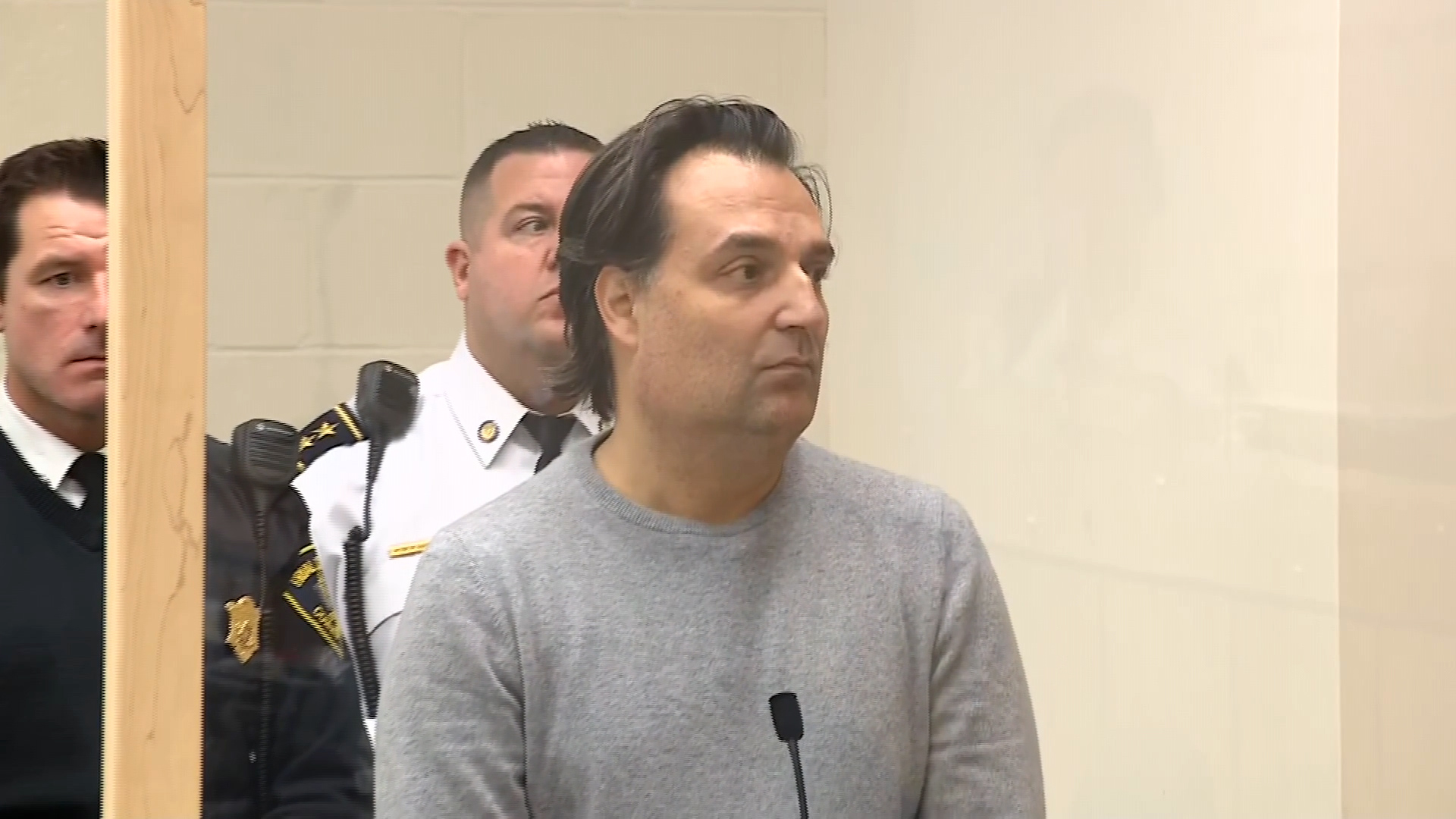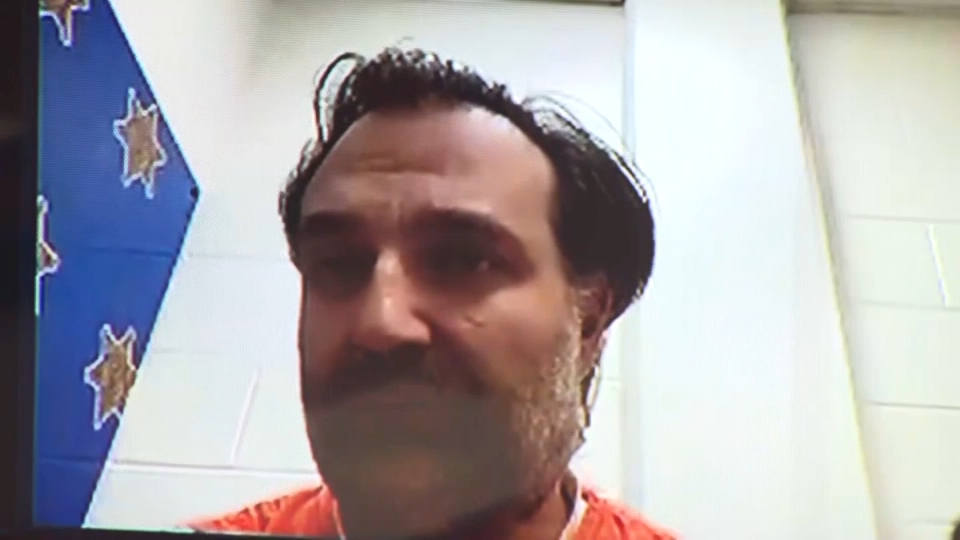The Massachusetts man accused of killing and dismembering his wife on New Year's Day, bought a litany of cleaning supplies — including two full-body plastic suits — before reporting her missing days later, prosecutors said in court Thursday.
Brian Walshe had suspected his wife, Ana Walshe, was having an affair; his mother had hired a private investigator into her; and pieces of clothes and jewelry he said she had on when she left their house in Cohasset early New Year's Day were later found in a dumpster near his mother's house, along with a hacksaw that had a bone fragment in it.
WATCH ANYTIME FOR FREE
Stream NBC10 Boston news for free, 24/7, wherever you are. |
Brian Walshe shook his head as the charges of first-degree murder, misleading a police investigation and improper conveyance of a human body that a grand jury brought against him were read out in Norfolk Superior Court in Dedham and pleaded not guilty.
Get updates on what's happening in Boston to your inbox. Sign up for our News Headlines newsletter.
His lawyer acknowledged the Google searches appear "problematic" but said there were other Google searches that didn't implicate him in a crime, and said Walshe didn't know his wife was having an affair until after he'd been charged.
As for the private investigator, the lawyer said Walshe had told his mother "she was cray, Ana's a good girl, but go ahead, you'll be proved wrong."
Walshe was ordered held without bail.
A first-degree murder conviction in Massachusetts carries a mandatory sentence of life in prison without parole.
Ana Walshe, who shares three children with Brian Walshe and is originally from Serbia, was last seen leaving the family's home in Cohasset, on Massachusetts' South Shore, in the early morning hours of Jan. 1. She was on her way to the airport for a flight to Washington, where she worked for a real estate company, Brian Walshe claimed. Her employer reported her missing Jan. 4.
Starting Jan. 1 and for several days after, Brian Walshe made multiple online searches using an iPad belonging to one of his sons using terms such as "dismemberment and best ways to dispose of a body," "how long before a body starts to smell" and "hacksaw best tool to dismember," prosecutors said at his initial court hearing.
Get updates on what's happening in Boston to your inbox. Sign up for our News Headlines newsletter.
The iPad figured in Thursday's testimony as well. In December, a suspicious Brian Walshe "would repeatedly access the Instagram page" of one of Ana Walshe's male friends from Washington, D.C., where she was working, prosecutors said. His mother hired the investigator on Dec. 26 "with his input and direction" to conduct surveillance and, the next day, his oldest child’s iPad was used for an internet search on the best and worst states in which to get a divorce.
Ana Walshe divided her time between Washington, D.C., where she worked for an international property management company, and the family home in the affluent coastal community of Cohasset. The pair had sold the family home in Cohasset but Brian Walshe couldn't leave the state — he'd been on home confinement with some exceptions while awaiting sentencing in a fraud case involving the sale of fake Andy Warhol paintings.
Ana Walshe went out with a friend in Washington on Dec. 28 and became "uncharacteristically emotional and extremely upset," prosecutors said.
"Ana believed Mr. Walshe was going to be incarcerated on his pending criminal case. Ana told her friend that she intended to relocate her three children to Washington, D.C., and was prepared to leave Mr. Walshe," the document said.
Investigators established much of what happened after Ana Walshe was last seen by someone outside of the family — at a New Year's dinner with a former employer of hers, with Brian Walshe cooking — by looking at the histories on the family's devices.
Brian Walshe told investigators he'd lost his cellphone on New Year's Day, but its history showed it was plugged in, according to prosecutors. Meanwhile, one of his child's cellphones moved around Massachusetts, and surveillance footage showed Brian Walshe at the locations, including a hacksaw and a full-coverage Tyvek suit. Later, at another store, he would allegedly buy another Tyvek suit, as well as a hatchet and leak-proof buckets.
Walshe would eventually tell investigators that his wife left the home early on Jan. 1 wearing Hunter boots, a Prada bag and possibly with a Hermes watch, according to prosecutors. Investigators later found those items had been put in the dumpster near his mother's home in Swampscott, where he'd visited on Jan. 1, along with Ana Walshe's COVID-19 vaccination cards and keys to their Volkswagen.
There was also a Tyvek suit with a red-brown stain that had Ana Walshe's DNA on it, prosecutors said.
Brian Walshe's attorney, Tracy Miner, noted Thursday that investigators found someone else's DNA on the suit, but couldn't directly connect it to Brian Walshe's.
Of the Google searchers, she said, "I get that they're problematic," but insisted that others made on the device were left out, including, "how to set up a charitable corporation to give up large lottery winnings tax-free."
She said there's been no body found, no indication if Ana Walshe died or how and no murder weapon or motive. During the New Year’s Eve dinner, she said, the couple and the friend had champagne and signed the box the bottle came in, saying that 2023 would be their best year ever.
Miner said he waited three days to call Ana's employer, following a pattern since Thanksgiving where she would be gone for days at a time and couldn't be contacted.
The Associated Press contributed to this story



